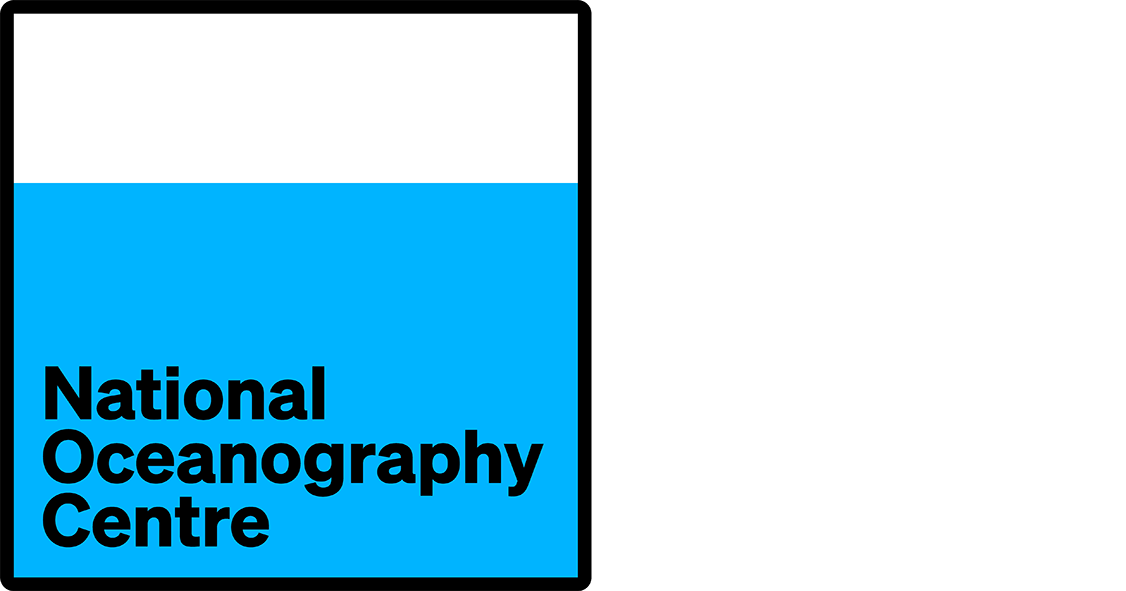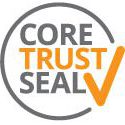Metadata Report for BODC Series Reference Number 56760
Metadata Summary
Problem Reports
Data Access Policy
Narrative Documents
Project Information
Data Activity or Cruise Information
Fixed Station Information
BODC Quality Flags
SeaDataNet Quality Flags
Metadata Summary
Data Description |
|||||||||||||||||||||||||
|
|||||||||||||||||||||||||
Data Identifiers |
|||||||||||||||||||||||||
|
|||||||||||||||||||||||||
Time Co-ordinates(UT) |
|||||||||||||||||||||||||
|
|||||||||||||||||||||||||
Spatial Co-ordinates | |||||||||||||||||||||||||
|
|||||||||||||||||||||||||
Parameters |
|||||||||||||||||||||||||
|
|||||||||||||||||||||||||
|
|||||||||||||||||||||||||
Problem Reports
No Problem Report Found in the Database
Data Access Policy
Public domain data
These data have no specific confidentiality restrictions for users. However, users must acknowledge data sources as it is not ethical to publish data without proper attribution. Any publication or other output resulting from usage of the data should include an acknowledgment.
The recommended acknowledgment is
"This study uses data from the data source/organisation/programme, provided by the British Oceanographic Data Centre and funded by the funding body."
Narrative Documents
Neil Brown MK3 CTD
The Neil Brown MK3 conductivity-temperature-depth (CTD) profiler consists of an integral unit containing pressure, temperature and conductivity sensors with an optional dissolved oxygen sensor in a pressure-hardened casing. The most widely used variant in the 1980s and 1990s was the MK3B. An upgrade to this, the MK3C, was developed to meet the requirements of the WOCE project.
The MK3C includes a low hysteresis, titanium strain gauge pressure transducer. The transducer temperature is measured separately, allowing correction for the effects of temperature on pressure measurements. The MK3C conductivity cell features a free flow, internal field design that eliminates ducted pumping and is not affected by external metallic objects such as guard cages and external sensors.
Additional optional sensors include pH and a pressure-temperature fluorometer. The instrument is no longer in production, but is supported (repair and calibration) by General Oceanics.
Specifications
These specification apply to the MK3C version.
| Pressure | Temperature | Conductivity | |
| Range | 6500 m 3200 m (optional) | -3 to 32°C | 1 to 6.5 S cm-1 |
| Accuracy | 0.0015% FS 0.03% FS < 1 msec | 0.0005°C 0.003°C < 30 msec | 0.0001 S cm-1 0.0003 S cm-1 < 30 msec |
Further details can be found in the specification sheet.
SeaTech Transmissometer
Introduction
The transmissometer is designed to accurately measure the the amount of light transmitted by a modulated Light Emitting Diode (LED) through a fixed-length in-situ water column to a synchronous detector.
Specifications
- Water path length: 5 cm (for use in turbid waters) to 1 m (for use in clear ocean waters).
- Beam diameter: 15 mm
- Transmitted beam collimation: <3 milliradians
- Receiver acceptance angle (in water): <18 milliradians
- Light source wavelength: usually (but not exclusively) 660 nm (red light)
Notes
The instrument can be interfaced to Aanderaa RCM7 current meters. This is achieved by fitting the transmissometer in a slot cut into a customized RCM4-type vane.
A red LED (660 nm) is used for general applications looking at water column sediment load. However, green or blue LEDs can be fitted for specilised optics applications. The light source used is identified by the BODC parameter code.
Further details can be found in the manufacturer's Manual.
RRS Discovery Cruise 139 CTD Data Documentation
Introduction
This document covers the CTD data collected on RRS Discovery Cruise 139 (July - August 1983) by the Institute of Oceanographic Sciences (Deacon Laboratory) Godalming, Surrey, UK, under the direction of P. M. Saunders.
Instrumentation
The instrument used was a Neil Brown Instrument Systems CTD which measured pressure, temperature and conductivity and was fitted with a Beckman dissolved oxygen electrode. The CTD was used alongside a General Oceanics Rosette Multisampler with 12 water bottles, a 10kHz pinger, a bottom echo sounder and a SeaTech transmissometer.
Sampling Protocol
Lowering and retrieval rates of 0.5 to 1.5 m/s were employed and the sensors were flushed with distilled water on recovery. Bottle samples and reversing thermometer measurements were made on descent and the sea water samples were analysed using a Guildline Autolab salinometer. Reversing thermometers were calibrated before and after the cruise.
Calibrations
Pressure
The pressure sensor was calibrated with a dead weight tester in the laboratory in June 1984 and showed a sensitivity unaltered from similar calibrations made in both 1980 and 1982. The deck pressure offset was stable and a value of 10db was assumed for all stations.
The table below shows differences in pressures determined from pairs of reversing thermometers (protected and unprotected) and simultaneous observations of CTD pressure.
For stations made over a flat bottom it is possible to compare CTD pressures with estimates derived from the ship's echo sounder. 32 such comparisons gave a mean difference of 1db (CTD less) and a standard deviation of 3.5db.
Temperature
Laboratory calibrations of May 1983 and December 1983/January 1984 showed the CTD temperature measurements stable to about ±0.002 °C. Corrected CTD temperatures were derived from the equation:
T = 0.027 + 0.00049943 * RAWTEMP
Salinity
During the cruise bottle salinities and reversing thermometer measurements revealed a linear potential temperature (POTT) - practical salinity (S) relationship for POTT less than 2.6 °C of:
S = 34.698 + 0.098 * POTT
The cell factor required to bring provisional CTD salinities into agreement with this relation was determined for each station.
The table below compares salinities derived from the rosette sampler and Guildline salinometer with the CTD values.
Oxygen
From a sample value of oxygen concentration (determined by the Winkler method) the fractional saturation content was obtained by normalising it by the appropriate saturation value. The Beckman oxygen cell also measures fractional saturation F, given by the equation:
ln F = ln I + ln C + aT + bp
where
I = oxygen probe current
T = ambient temperature (electrode temperature ignored)
p = pressure
A least squares fit of 70 data sets gave:
C = 1.28E-03
a = -0.0316 per °C
b = 1.758E-04 per db
The electrode current exhibits a time dependent lag which has been corrected using the expression:
LAG (secs) = 70 e -0.1 * T (ambient) °C
The comparison between sample oxygen concentrations and CTD oxygen values is shown in the table.
Transmittance
Potential transmittance, which takes account of the increasing mass of clear water in the 1m path of the instrument with increasing depth, was calculated. The mean potential transmittance for 43 stations at 4000db is 68.85 per cent/m with an rms variation of 0.15 per cent/m.
Fit of CTD Data to Rosette Sample Values
| Difference between CTD and Rosette Measurements | ||||
|---|---|---|---|---|
| Variable | Range | Mean difference | R.M.S. | Number |
| Pressure (db) | 0-2000 db | +2.3 | 3.8 | 79 |
| 2000-5400 db | +2.9 | 4.9 | 116 | |
| Temperature (°C) | 5-23 °C | +0.007 | 0.020 | 156 |
| 2-5 °C | +0.004 | 0.003 | 125 | |
| Salinity (PSU) | 0-2000 db | +0.002 | 0.018 | 280 |
| 2000-5400 db | 0 | 0.003 | 175 | |
| Oxygen (ml/l) | 0-2000 db | -0.020 | 0.174 | 39 |
| 2000-5400 db | +0.018 | 0.124 | 31 | |
The depth of the 5 °C isotherm is approximately 1800 db.
Data Processing
Original values were averaged over an interval of one second and calibration coefficients and correction factors applied. A time constant correction algorithm was employed to compensate for the slower response of the platinum resistance thermometer in relation to the other sensors.
Differences between successive values of each parameter were examined; the mean difference and its standard deviation calculated and values greater than several standard deviations from the mean difference were checked. Genuinely suspect data were then replaced by interpolated values.
Derived quantities were computed from algorithms published by Fofonoff and Millard (1983). To remove the effect of ships heave data cycles were sorted by pressure before all values were averaged at 5db intervals, centred on 2.5db, 7.5db and so forth.
References
Fofonoff, N.P. and Millard Jr., R.C. (1983).
Algorithms for the computation of fundamental properties of sea water. UNESCO Technical Paper on Marine Science 44.
Saunders, P.M. and Manning, A. (1984).
CTD data from the north east Atlantic Ocean 22° N - 33°N, 19°W - 24°W, July 1983 during RRS Discovery Cruise 138,139. Institute of Oceanographic Sciences, Report No. 188.
Project Information
No Project Information held for the Series
Data Activity or Cruise Information
Cruise
| Cruise Name | D139 |
| Departure Date | 1983-07-12 |
| Arrival Date | 1983-08-03 |
| Principal Scientist(s) | Alan J Elliott (University of Wales, Bangor School of Ocean Sciences) |
| Ship | RRS Discovery |
Complete Cruise Metadata Report is available here
Fixed Station Information
No Fixed Station Information held for the Series
BODC Quality Control Flags
The following single character qualifying flags may be associated with one or more individual parameters with a data cycle:
| Flag | Description |
|---|---|
| Blank | Unqualified |
| < | Below detection limit |
| > | In excess of quoted value |
| A | Taxonomic flag for affinis (aff.) |
| B | Beginning of CTD Down/Up Cast |
| C | Taxonomic flag for confer (cf.) |
| D | Thermometric depth |
| E | End of CTD Down/Up Cast |
| G | Non-taxonomic biological characteristic uncertainty |
| H | Extrapolated value |
| I | Taxonomic flag for single species (sp.) |
| K | Improbable value - unknown quality control source |
| L | Improbable value - originator's quality control |
| M | Improbable value - BODC quality control |
| N | Null value |
| O | Improbable value - user quality control |
| P | Trace/calm |
| Q | Indeterminate |
| R | Replacement value |
| S | Estimated value |
| T | Interpolated value |
| U | Uncalibrated |
| W | Control value |
| X | Excessive difference |
SeaDataNet Quality Control Flags
The following single character qualifying flags may be associated with one or more individual parameters with a data cycle:
| Flag | Description |
|---|---|
| 0 | no quality control |
| 1 | good value |
| 2 | probably good value |
| 3 | probably bad value |
| 4 | bad value |
| 5 | changed value |
| 6 | value below detection |
| 7 | value in excess |
| 8 | interpolated value |
| 9 | missing value |
| A | value phenomenon uncertain |
| B | nominal value |
| Q | value below limit of quantification |


